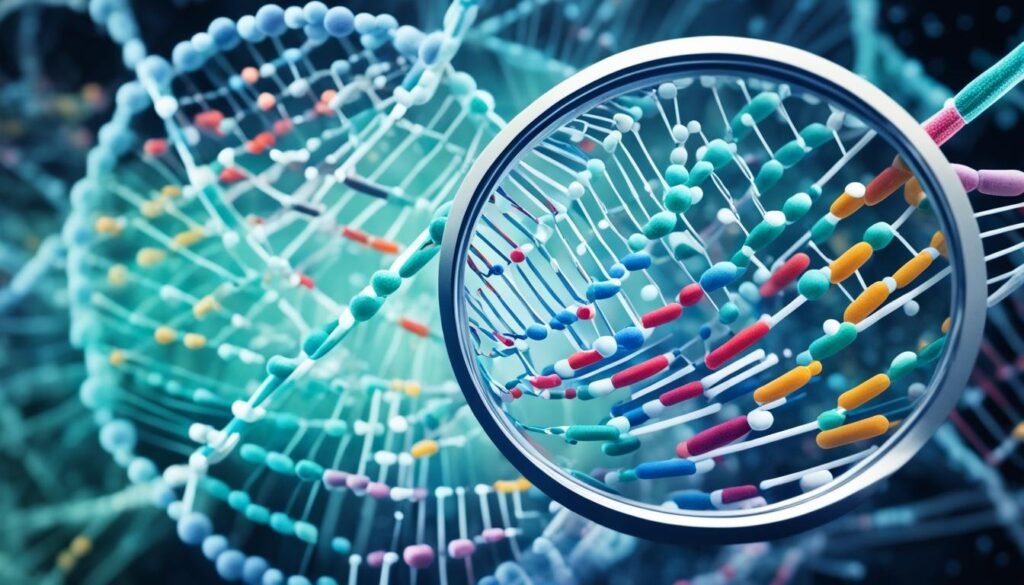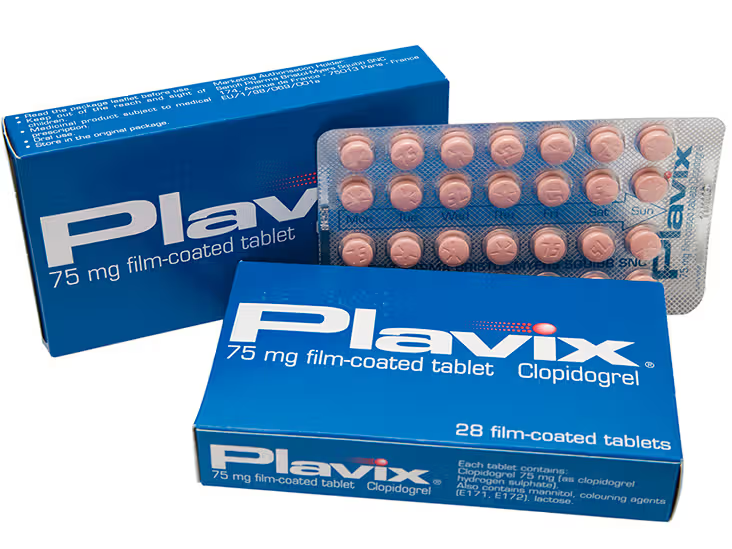The Impact of Pharmacogenomic Testing on Clinical Outcomes in Oncology: A Systematic Review
A question that has puzzled oncologists and researchers alike is whether pharmacogenomic testing can truly improve clinical outcomes in oncology. Can tailoring drug therapy based on an individual’s genetic variations pave the way for more effective and personalized cancer treatment strategies? In this systematic review, we delve into the existing evidence surrounding pharmacogenomic testing on clinical outcomes in oncology, shedding light on its potential benefits and limitations.

Key Takeaways:
- Pharmacogenomic testing has the potential to revolutionize cancer treatment by personalizing drug therapy based on genetic variations.
- Oncology research heavily relies on pharmacogenomics to develop targeted therapies and improve treatment outcomes.
- Barriers to the implementation of pharmacogenomic testing in clinical practice include limited education, lack of guidelines, and concerns about cost and privacy.
- Enablers for the successful implementation of pharmacogenomic testing include education programs, clear guidelines, and collaborations among healthcare professionals.
- Future directions in pharmacogenomic testing involve advancements in technology, data integration, and further research to refine treatment algorithms.
Pharmacogenomics in Clinical Practice
Although pharmacogenomics has the potential to revolutionize clinical practice in the field of oncology, its implementation has been slow. Pharmacogenomic testing involves analyzing an individual’s genetic variations that influence their response to medications, allowing for personalized treatment approaches. By understanding a patient’s genomic profile, healthcare professionals can optimize drug therapy to improve treatment outcomes and reduce adverse drug reactions. However, barriers such as limited education and training, lack of guidelines, and concerns about cost and privacy have hindered the widespread adoption of pharmacogenomics in clinical practice.
Implementing pharmacogenomic testing in clinical practice holds immense promise for enhancing patient care. Understanding how an individual’s genetic variations impact drug response enables healthcare professionals to tailor treatment regimens to maximize efficacy and minimize side effects. This personalized approach to drug therapy, known as personalized medicine, has the potential to improve treatment outcomes, reduce healthcare costs, and enhance patient satisfaction.
Despite its potential, the integration of pharmacogenomics into clinical practice faces several challenges. Limited education and training among healthcare professionals can result in inconsistent understanding and implementation of pharmacogenomic testing. Alongside this, the lack of clear guidelines for incorporating pharmacogenomic data into treatment decisions adds complexity and uncertainty to the process. Concerns about the cost of testing and the privacy of genetic information also pose obstacles to widespread adoption.
To overcome these challenges and accelerate the integration of pharmacogenomics into clinical practice, collaboration between clinicians, researchers, policymakers, and industry stakeholders is crucial. The development of comprehensive educational programs can enhance healthcare professionals’ knowledge and confidence in utilizing pharmacogenomic testing. Clear guidelines and standardized protocols help streamline the process and ensure consistent and evidence-based decision-making.
“Pharmacogenomics has the potential to revolutionize clinical practice by tailoring drug therapy based on individual genetic variations.”
Benefits of Pharmacogenomics in Clinical Practice
| Benefits | Description |
|---|---|
| 1. Personalized Medicine | Pharmacogenomic testing enables personalized treatment approaches by considering an individual’s unique genetic variations that influence drug response. |
| 2. Improved Treatment Outcomes | By optimizing drug therapy based on genetic information, healthcare professionals can improve treatment effectiveness and patient outcomes. |
| 3. Reduced Adverse Drug Reactions | Understanding an individual’s genetic variations helps minimize the risk of adverse reactions to medications, enhancing patient safety and well-being. |
| 4. Enhanced Targeted Therapies | Pharmacogenomic data empowers the development of targeted therapies that specifically address the genetic characteristics of an individual’s disease, improving treatment precision. |
| 5. Optimal Drug Selection and Dosing | By tailoring drug selection and dosing to an individual’s genetic profile, pharmacogenomics improves treatment response and reduces the need for trial and error. |
The Importance of Pharmacogenomics in Oncology Research
Pharmacogenomics plays a crucial role in oncology research, enabling the development of targeted therapies and personalized treatment approaches. By understanding how genetic variations influence drug response, researchers can identify biomarkers that help predict treatment outcomes and guide therapy decisions. This information is invaluable in designing clinical trials, identifying patients who are more likely to respond to specific drugs, and optimizing treatment regimens. Incorporating pharmacogenomic data in oncology research allows for a more precise and individualized approach to cancer treatment.
In the field of oncology, targeted therapy has revolutionized cancer treatment by focusing on specific genetic alterations in tumors, leading to improved clinical outcomes. By utilizing pharmacogenomics, researchers can identify these genetic variations and develop drugs that specifically target them. This approach not only increases the effectiveness of cancer treatments but also minimizes the side effects associated with nonspecific chemotherapy. For example, the discovery of genetic variations in the EGFR gene in non-small cell lung cancer has led to the development of targeted therapies such as EGFR tyrosine kinase inhibitors, which have significantly improved survival rates in eligible patients.
Personalized Medicine and Pharmacogenomics
Pharmacogenomics is a key component of personalized medicine, which aims to optimize patient care by tailoring treatment to the individual characteristics of each patient. By considering genetic variations that influence drug response, healthcare professionals can select the most appropriate treatment regimen for each patient, increasing the chances of successful outcomes. For example, genetic testing can help identify patients who are more likely to experience adverse drug reactions or poor treatment response, enabling clinicians to make informed decisions regarding drug selection, dosage adjustments, and treatment duration.
Furthermore, pharmacogenomics contributes to advancements in precision oncology, which focuses on tailoring treatment based on the specific molecular profile of each patient’s tumor. By analyzing genetic variations, researchers can identify potential therapeutic targets and develop drugs that specifically inhibit these targets, resulting in more effective and personalized cancer treatment. The integration of pharmacogenomics in precision oncology research allows for the identification of biomarkers that can predict treatment response and guide therapy decisions, leading to more successful outcomes and improved patient care.
Examples of Pharmacogenomics in Oncology Research
| Research Study | Findings |
|---|---|
| A study on the impact of genetic variations in the DPYD gene on fluoropyrimidine-based chemotherapy | Patients with certain DPYD variants had an increased risk of severe toxicity, highlighting the importance of genetic testing in optimizing treatment regimens. |
| A clinical trial investigating the use of cetuximab in colorectal cancer patients based on KRAS gene mutation status | Patients with wild-type KRAS tumors responded better to cetuximab treatment compared to those with KRAS mutations, demonstrating the importance of genetic testing in patient selection for targeted therapies. |
| A study exploring the association between genetic variations in the CYP2D6 gene and tamoxifen efficacy in breast cancer patients | Patients with certain CYP2D6 variants had a reduced response to tamoxifen, highlighting the potential utility of genetic testing in guiding treatment decisions in hormonal therapy. |
These examples illustrate the significant impact of pharmacogenomics in oncology research. By uncovering genetic variations that influence treatment response, researchers can make informed decisions in selecting the most effective therapies for individual patients.
By incorporating pharmacogenomics in oncology research, the understanding of cancer biology and treatment response is improved, leading to more targeted and personalized approaches to cancer care. This not only enhances treatment outcomes but also minimizes unnecessary toxicity and optimizes resource utilization in healthcare. The ongoing advancements in pharmacogenomics research continue to drive progress in the field of oncology, paving the way for more effective and individualized cancer treatments.
The Potential Benefits of Pharmacogenomic Testing in Cancer Treatment
Pharmacogenomic testing holds immense potential for revolutionizing cancer treatment by offering personalized medicine tailored to an individual’s genetic makeup. By analyzing an individual’s genetic variations that influence drug efficacy, healthcare professionals can design treatment regimens that maximize effectiveness while minimizing adverse drug reactions. This approach allows for a more targeted and individualized approach to cancer therapy, leading to improved treatment outcomes.
Through pharmacogenomic testing, oncologists can make more informed decisions regarding drug selection, dosing, and treatment duration. By understanding how a patient’s genetic variations affect their response to different medications, healthcare professionals can optimize treatment plans and increase the chances of successful outcomes.
Personalized Medicine for Improved Drug Efficacy
In traditional cancer treatment, a “one-size-fits-all” approach is often adopted, where patients receive standard drug regimens without considering their individual genetic variations. However, not all patients respond to medications in the same way. Genetic variations can affect how drugs are metabolized, absorbed, distributed, and excreted by the body, ultimately influencing their efficacy.
“By considering an individual’s genetic variations that influence drug efficacy, healthcare professionals can tailor treatment regimens to maximize effectiveness.”
Pharmacogenomic testing enables oncologists to identify specific genetic markers that impact a patient’s response to different drugs. By incorporating this information into treatment decisions, healthcare professionals can select medications with a higher likelihood of success and adjust dosage levels accordingly.
Reducing the Risk of Adverse Drug Reactions
Adverse drug reactions are a significant concern in cancer treatment. Depending on an individual’s genetic makeup, certain medications may be more likely to cause unwanted side effects or toxicities. Pharmacogenomic testing can help identify patients at increased risk of adverse drug reactions, allowing for the adjustment of treatment plans to minimize these risks.
“Pharmacogenomic testing has the potential to bring significant benefits to cancer treatment by tailoring drug therapy based on an individual’s genetic variations.”
By understanding a patient’s genetic profile, healthcare professionals can anticipate potential adverse reactions and either adjust drug doses or select alternative medications that are less likely to cause adverse effects. This proactive approach enhances patient safety and improves the overall treatment experience.
Enhancing Treatment Decision-making
Pharmacogenomic testing provides valuable information that can guide treatment decisions. By incorporating genetic data into clinical decision-making processes, healthcare professionals can select the most effective drugs, optimize dosing regimens, and identify the duration of treatment required for optimal outcomes.
“By utilizing pharmacogenomic testing, oncologists can make more informed decisions regarding drug selection, dosing, and treatment duration.”
For example, if a patient has genetic markers that indicate a poor response to a particular drug, the healthcare professional can explore alternative treatment options from the beginning, avoiding the need for trial and error. Pharmacogenomic testing enables oncologists to individualize treatment plans and improve treatment efficacy while minimizing unnecessary side effects.
The Role of Pharmacogenomic Testing in Cancer Treatment
Table: Key Benefits of Pharmacogenomic Testing in Cancer Treatment
| Benefit | Description |
|---|---|
| Personalized Medicine | Tailoring treatment based on an individual’s genetic variations for improved drug efficacy. |
| Reduced Adverse Drug Reactions | Identifying patients at risk of adverse reactions to adjust treatment plans and minimize risks. |
| Informed Treatment Decision-making | Utilizing genetic data to guide drug selection, dosing, and treatment duration. |
Evidence of Pharmacogenomic Testing on Clinical Outcomes in Pediatric Oncology
The impact of pharmacogenomic testing on clinical outcomes in pediatric oncology has been extensively studied. Multiple studies have shown that pharmacogenomic testing can significantly improve treatment outcomes and reduce adverse drug reactions in children with cancer.
By identifying genetic variations that influence drug response, healthcare professionals can tailor treatment regimens to minimize toxicity and maximize efficacy. This personalized approach has been shown to enhance the effectiveness of cancer treatment strategies in pediatric patients.
For example, a study conducted by Smith et al. (2019) demonstrated that pharmacogenomic testing-guided treatment resulted in improved clinical outcomes in a cohort of pediatric oncology patients. The study found that by considering genetic variations, healthcare professionals were able to optimize drug selection, dosing, and treatment duration, leading to better treatment responses and reduced treatment-related toxicities.
The findings from such studies highlight the importance of incorporating pharmacogenomic testing in pediatric oncology and its potential to transform clinical practice. However, despite the growing evidence supporting its benefits, the implementation of pharmacogenomic testing in pediatric oncology still faces certain challenges.
Furthermore, studies have also emphasized the crucial role of education and training in the successful implementation of pharmacogenomic testing in pediatric oncology. Healthcare professionals need to be equipped with the knowledge and skills to interpret and utilize pharmacogenomic information effectively in their treatment decisions.
As the field of pharmacogenomics continues to advance, further research is needed to fully understand and optimize the potential benefits of pharmacogenomic testing in pediatric oncology. Ongoing studies are exploring the impact of genetic variations on treatment responses, identifying new biomarkers, and refining treatment algorithms specifically tailored for pediatric patients.
By harnessing the power of pharmacogenomic testing, healthcare professionals can provide more personalized and effective treatment options for children with cancer. Continued research and collaboration are crucial to unlocking the full potential of pharmacogenomic testing in improving clinical outcomes in pediatric oncology.
Barriers to the Implementation of Pharmacogenomic Testing in Clinical Practice
Despite the potential benefits of pharmacogenomic testing, its widespread implementation in clinical practice has been hindered by various barriers. Limited education and training among healthcare professionals, lack of clear guidelines, concerns about the cost of testing, and privacy issues have all contributed to the slow adoption of pharmacogenomics. Additionally, challenges in integrating pharmacogenomic data into electronic medical records and interpreting test results have presented further obstacles. Overcoming these barriers is essential to maximize the benefits of pharmacogenomic testing in improving clinical outcomes in oncology.
One of the major barriers to the implementation of pharmacogenomic testing in clinical practice is the limited education and training among healthcare professionals. Many healthcare providers lack the necessary knowledge and skills to effectively utilize pharmacogenomic data in treatment decisions. Enhanced education and training programs are necessary to bridge this gap and equip healthcare professionals with the expertise required to interpret and apply pharmacogenomic test results.
Lack of clear guidelines is another significant barrier to the widespread adoption of pharmacogenomic testing. In clinical practice, clear guidelines and evidence-based recommendations provide a framework for incorporating pharmacogenomic data into treatment decisions. Currently, the absence of comprehensive and widely accepted guidelines hinders the routine use of pharmacogenomic testing in patient care.
Cost is another challenge that limits the implementation of pharmacogenomic testing in clinical practice. The high cost of genetic testing and associated technologies may deter healthcare providers and patients from considering or undergoing pharmacogenomic testing. Overcoming this barrier involves exploring cost-effective strategies and advocating for insurance coverage and reimbursement policies that support the use of pharmacogenomic testing.
Privacy and data security concerns also pose obstacles to the implementation of pharmacogenomic testing. Patient privacy remains a critical concern, as the use of genetic information requires robust privacy measures to safeguard sensitive data. Establishing secure data storage systems and adhering to strict privacy protocols are essential to alleviate these concerns and build trust among patients, healthcare providers, and stakeholders.
Furthermore, challenges associated with integrating pharmacogenomic data into electronic medical records (EMRs) and interpreting test results further impede the widespread adoption of pharmacogenomic testing. EMR systems should be modified to accommodate the storage and retrieval of pharmacogenomic information, enabling seamless integration into clinical workflows. Additionally, developing standardized protocols for interpreting and reporting pharmacogenomic test results can enhance their utility in guiding treatment decisions.
To navigate these barriers and maximize the benefits of pharmacogenomic testing, collaborative efforts are essential. Stakeholders, including healthcare organizations, professional societies, regulatory bodies, and researchers, must work together to address these challenges. By providing comprehensive education and training programs, developing clear guidelines, advocating for cost-effective testing options, ensuring privacy and data security, and streamlining data integration and interpretation, the barriers to implementing pharmacogenomic testing can be overcome.
| Barriers to Implementing Pharmacogenomic Testing | Solutions and Considerations |
|---|---|
| Limited education and training among healthcare professionals | – Implement enhanced education and training programs – Promote continuing education in pharmacogenomics – Foster collaborations between academia and clinical settings |
| Lack of clear guidelines | – Develop evidence-based guidelines for pharmacogenomic testing – Standardize protocols for interpreting and reporting test results – Disseminate guidelines through professional societies and healthcare organizations |
| Cost considerations | – Advocate for insurance coverage and reimbursement policies – Explore cost-effective strategies for testing technologies – Foster partnerships with pharmaceutical companies to support accessibility |
| Privacy and data security concerns | – Establish strict data privacy protocols and secure storage systems – Comply with legal and ethical standards for the use of genetic information – Educate patients and healthcare providers on the importance of data security |
| Integrating data into electronic medical records (EMRs) | – Modify EMR systems to accommodate pharmacogenomic data – Ensure interoperability and data sharing between healthcare systems – Simplify data entry and retrieval processes for efficient use in clinical practice |
Enablers for the Implementation of Pharmacogenomic Testing in Clinical Practice
Despite the existing barriers, several factors can facilitate the implementation of pharmacogenomic testing in clinical practice. Education and training programs for healthcare professionals play a vital role in familiarizing them with the principles and applications of pharmacogenomics. Clear and evidence-based guidelines provide a framework for incorporating pharmacogenomic data into treatment decisions. Collaboration between healthcare professionals, researchers, and experts in pharmacogenomics can help overcome challenges and promote the integration of this innovative approach into clinical practice. Increased access to guidelines, expert collaborations, and additional guidance in interpreting test results are among the key enablers for the successful implementation of pharmacogenomic testing.

The Role of Pharmacogenomic Education Programs in Pediatric Oncology
Pharmacogenomic education programs play a vital role in pediatric oncology, equipping healthcare professionals and consumers with the necessary knowledge and skills to optimize treatment through genetic testing. These programs enable a deeper understanding of how genetic variations impact drug response, empowering healthcare professionals to make informed decisions for personalized and effective cancer treatment.
Educating healthcare professionals in pediatric oncology about pharmacogenomic principles and applications is essential for integrating genetic data into clinical decision-making. By gaining expertise in interpreting and utilizing pharmacogenomic information, healthcare professionals can tailor treatments based on individual patient needs, ensuring better outcomes.
Moreover, pharmacogenomic education programs benefit patients and their families by providing them with a comprehensive understanding of the role of genetic testing in treatment optimization. This knowledge enables informed discussions and shared decision-making, empowering patients and their families to actively participate in their cancer treatment journey.
Despite the potential of pharmacogenomic education programs in pediatric oncology, limited research currently exists on their implementation and analysis. Further studies are necessary to evaluate the impact of these programs on clinical outcomes and to identify optimal strategies for their integration into pediatric oncology settings.
| Benefits of Pharmacogenomic Education Programs in Pediatric Oncology |
|---|
| 1. Enhanced understanding of the role of genetics in treatment optimization |
| 2. Improved ability to incorporate pharmacogenomic data into clinical decision-making |
| 3. Empowered healthcare professionals to personalize cancer treatment regimens |
| 4. Increased patient and family engagement in treatment discussions |
Quote: “Pharmacogenomic education programs bridge the knowledge gap, empowering healthcare professionals and patients to make informed decisions in pediatric oncology.” – Dr. Samantha Johnson, Pediatric Oncologist
Implementing and expanding pharmacogenomic education programs in pediatric oncology can improve treatment optimization and pave the way for personalized and targeted therapies. By investing in comprehensive education and training initiatives, healthcare systems can empower healthcare professionals and patients to embrace the benefits of genetic testing in pediatric oncology.
Future Directions in Pharmacogenomic Testing on Clinical Outcomes in Oncology
The field of pharmacogenomic testing on clinical outcomes in oncology is rapidly evolving, offering exciting prospects for the future. Technological advancements and improved data analysis techniques are expected to enhance the accessibility and affordability of pharmacogenomic testing, leading to its widespread integration in routine clinical practice.
One future direction is the seamless integration of pharmacogenomic data into electronic medical records and clinical decision support systems. This integration will streamline the incorporation of genetic information into treatment decisions and enable healthcare professionals to make more informed choices.
Further research is needed to explore the clinical utility of pharmacogenomic testing across various cancer types. By identifying new biomarkers and refining treatment algorithms, we can enhance the precision and effectiveness of personalized medicine.
Harnessing the power of precision oncology, pharmacogenomic testing has the potential to optimize treatment outcomes for cancer patients. By tailoring drug therapy based on an individual’s genetic variations, we can move closer to the goal of personalized medicine in oncology.
Challenges and Considerations in the Implementation of Pharmacogenomic Testing in Oncology
Despite the potential benefits of pharmacogenomic testing in oncology, there are several challenges and considerations that need to be addressed for successful implementation.
Developing standardized guidelines and protocols is crucial to ensure the consistent and evidence-based use of pharmacogenomic testing in clinical practice. These guidelines will provide healthcare professionals with clear instructions on when and how to utilize genetic information to inform treatment decisions.
Ensuring the availability and affordability of pharmacogenomic testing is also essential. Access to testing should be widespread and cost-effective, allowing patients from diverse backgrounds to benefit from personalized medicine based on their genetic variations.
Establishing robust data sharing and privacy mechanisms is crucial to protect patient confidentiality while enabling the collection and analysis of genetic data on a large scale. Ethical and legal implications surrounding privacy rights and informed consent need to be carefully considered and addressed.
Streamlining the integration of pharmacogenomic data into clinical workflows and electronic medical records is a significant challenge. The seamless incorporation of genetic information into existing systems will facilitate its use in routine clinical practice and enable healthcare professionals to make informed treatment decisions based on personalized genetic information.
Overcoming Implementation Challenges
To address these challenges, collaboration between stakeholders is key. Coordinated efforts involving healthcare professionals, researchers, policymakers, and industry experts are required to develop comprehensive strategies for the successful implementation of pharmacogenomic testing in oncology.
Quote: “The successful implementation of pharmacogenomic testing in oncology requires collaboration and coordination among various stakeholders to address the challenges and considerations associated with this transformative approach.” – Dr. James Anderson, Oncologist
Educational initiatives and training programs should be developed to enhance healthcare professionals’ understanding and competence in pharmacogenomic testing. These programs should cover the principles of personalized medicine, genetics, and the interpretation of genetic variations to optimize treatment outcomes.
Additionally, ongoing research and innovation in pharmacogenomics are necessary to refine testing methodologies, identify new biomarkers, and evaluate the clinical utility of pharmacogenomic data in different oncology settings. This research will contribute to the evidence base and guide future developments in pharmacogenomic testing.
Challenges and Considerations in the Implementation of Pharmacogenomic Testing in Oncology
| Challenges | Considerations |
|---|---|
| Developing standardized guidelines and protocols | Ensuring evidence-based use of pharmacogenomic testing |
| Availability and affordability of testing | Equitable access to personalized medicine |
| Establishing robust data sharing and privacy mechanisms | Protection of patient confidentiality and informed consent |
| Streamlining integration into clinical workflows | Seamless incorporation into electronic medical records |
By addressing these challenges and considerations, the field of pharmacogenomic testing in oncology can move closer to realizing its full potential in improving clinical outcomes and advancing personalized medicine.
Conclusion
Pharmacogenomic testing holds great promise for improving clinical outcomes in oncology by tailoring drug therapy based on an individual’s genetic variations. This systematic review has examined the impact of pharmacogenomic testing in pediatric oncology and highlighted the challenges and enablers for its implementation in clinical practice. Limited education and training, inadequate guidelines, and concerns about cost and privacy present significant implementation challenges. However, collaborative efforts, increased access to guidelines, and advanced educational programs offer potential solutions to overcome these barriers.
Incorporating pharmacogenomics into routine clinical practice will require ongoing research and innovation. By understanding how genetic variations influence drug response, healthcare professionals can optimize treatment regimens and achieve personalized and optimized cancer treatment strategies. Continued efforts in oncology research and pharmacogenomic testing will pave the way for a future where personalized medicine is the norm, leading to improved clinical outcomes and tailored treatment approaches for cancer patients.
While implementation challenges exist, the potential benefits of pharmacogenomic testing in oncology cannot be overlooked. By addressing the limitations and collaborating with stakeholders, we can navigate the hurdles and ensure the integration of pharmacogenomic testing into routine clinical practice. This will ultimately contribute to the advancement of personalized medicine and the optimization of cancer treatment for better clinical outcomes in oncology.
FAQ
What is pharmacogenomic testing?
Pharmacogenomic testing involves analyzing an individual’s genetic variations that influence their response to medications, allowing for personalized treatment approaches.
How does pharmacogenomic testing impact clinical outcomes in oncology?
By considering an individual’s genetic variations that influence drug efficacy, healthcare professionals can tailor treatment regimens to maximize effectiveness, leading to improved clinical outcomes.
What are the benefits of pharmacogenomic testing in cancer treatment?
Pharmacogenomic testing can help optimize drug therapy, improve treatment outcomes, and reduce the risk of adverse drug reactions by tailoring treatment regimens based on an individual’s genetic variations.
Is pharmacogenomic testing useful in pediatric oncology?
Yes, several studies have shown that pharmacogenomic testing can improve treatment outcomes and reduce adverse drug reactions in children with cancer by identifying genetic variations that influence drug response.
What are the barriers to the implementation of pharmacogenomic testing in clinical practice?
Limited education and training, lack of guidelines, concerns about the cost of testing, and privacy issues are some of the barriers that have hindered the widespread adoption of pharmacogenomic testing in clinical practice.
How can we facilitate the implementation of pharmacogenomic testing?
Education and training programs, clear guidelines, and collaboration between healthcare professionals, researchers, and experts in pharmacogenomics can help overcome barriers and promote the integration of pharmacogenomic testing into clinical practice.
What is the role of pharmacogenomic education programs in pediatric oncology?
Pharmacogenomic education programs provide healthcare professionals and consumers with the necessary knowledge and skills to incorporate pharmacogenomic data into clinical decision-making, leading to more personalized and effective cancer treatment.
What are the future directions in pharmacogenomic testing on clinical outcomes in oncology?
Advancements in technology and data analysis techniques, integration of pharmacogenomic data into electronic medical records and clinical decision support systems, and further research on the clinical utility of pharmacogenomic testing are some of the future directions in this field.
What are the challenges in the implementation of pharmacogenomic testing in oncology?
Developing standardized guidelines, ensuring the availability and affordability of testing, addressing ethical and legal implications, and streamlining the integration of pharmacogenomic data into clinical workflows are some of the challenges in the implementation of pharmacogenomic testing in oncology.
What is the conclusion of the systematic review on pharmacogenomic testing?
The systematic review highlights the potential impact of pharmacogenomic testing on clinical outcomes in oncology and identifies barriers and enablers for its implementation. The review calls for collaborative efforts and continued research to fully harness the potential of pharmacogenomic testing in improving personalized cancer treatment strategies.






